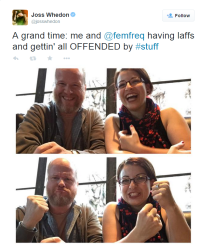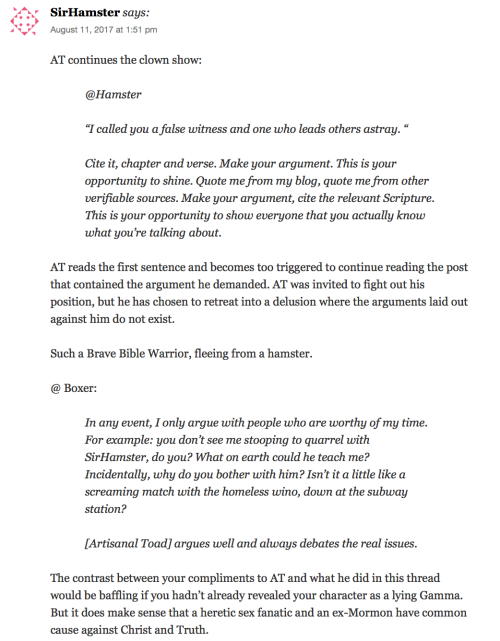Without further comment, I reproduce here the complete memo, published anonymously, by a software engineer at Google’s campus in Mountain View, California.
Reply to public response and misrepresentation
I value diversity and inclusion, am not denying that sexism exists, and don’t endorse using stereotypes. When addressing the gap in representation in the population, we need to look at population level differences in distributions. If we can’t have an honest discussion about this, then we can never truly solve the problem. Psychological safety is built on mutual respect and acceptance, but unfortunately our culture of shaming and misrepresentation is disrespectful and unaccepting of anyone outside its echo chamber. Despite what the public response seems to have been, I’ve gotten many personal messages from fellow Googlers expressing their gratitude for bringing up these very important issues which they agree with but would never have the courage to say or defend because of our shaming culture and the possibility of being fired. This needs to change.
TL:DR
Google’s political bias has equated the freedom from offense with psychological safety, but shaming into silence is the antithesis of psychological safety.
This silencing has created an ideological echo chamber where some ideas are too sacred to be honestly discussed.
The lack of discussion fosters the most extreme and authoritarian elements of this ideology.
Extreme: all disparities in representation are due to oppression
Authoritarian: we should discriminate to correct for this oppression
Differences in distributions of traits between men and women may in part explain why we don’t have 50% representation of women in tech and leadership. Discrimination to reach equal representation is unfair, divisive, and bad for business.
Background [1]
People generally have good intentions, but we all have biases which are invisible to us. Thankfully, open and honest discussion with those who disagree can highlight our blind spots and help us grow, which is why I wrote this document.[2] Google has several biases and honest discussion about these biases is being silenced by the dominant ideology. What follows is by no means the complete story, but it’s a perspective that desperately needs to be told at Google.
Google’s biases
At Google, we talk so much about unconscious bias as it applies to race and gender, but we rarely discuss our moral biases. Political orientation is actually a result of deep moral preferences and thus biases. Considering that the overwhelming majority of the social sciences, media, and Google lean left, we should critically examine these prejudices.
Left Biases
Compassion for the weak
Disparities are due to injustices
Humans are inherently cooperative
Change is good (unstable)
Open
Idealist
Right Biases
Respect for the strong/authority
Disparities are natural and just
Humans are inherently competitive
Change is dangerous (stable)
Closed
Pragmatic
Neither side is 100% correct and both viewpoints are necessary for a functioning society or, in this case, company. A company too far to the right may be slow to react, overly hierarchical, and untrusting of others. In contrast, a company too far to the left will constantly be changing (deprecating much loved services), over diversify its interests (ignoring or being ashamed of its core business), and overly trust its employees and competitors.
Only facts and reason can shed light on these biases, but when it comes to diversity and inclusion, Google’s left bias has created a politically correct monoculture that maintains its hold by shaming dissenters into silence. This silence removes any checks against encroaching extremist and authoritarian policies. For the rest of this document, I’ll concentrate on the extreme stance that all differences in outcome are due to differential treatment and the authoritarian element that’s required to actually discriminate to create equal representation.
Possible non-bias causes of the gender gap in tech [3]
At Google, we’re regularly told that implicit (unconscious) and explicit biases are holding women back in tech and leadership. Of course, men and women experience bias, tech, and the workplace differently and we should be cognizant of this, but it’s far from the whole story.
On average, men and women biologically differ in many ways. These differences aren’t just socially constructed because:
They’re universal across human cultures
They often have clear biological causes and links to prenatal testosterone
Biological males that were castrated at birth and raised as females often still identify and act like males
The underlying traits are highly heritable
They’re exactly what we would predict from an evolutionary psychology perspective
Note, I’m not saying that all men differ from women in the following ways or that these differences are “just.” I’m simply stating that the distribution of preferences and abilities of men and women differ in part due to biological causes and that these differences may explain why we don’t see equal representation of women in tech and leadership. Many of these differences are small and there’s significant overlap between men and women, so you can’t say anything about an individual given these population level distributions.
Personality differences
Women, on average, have more:
Openness directed towards feelings and aesthetics rather than ideas. Women generally also have a stronger interest in people rather than things, relative to men (also interpreted as empathizing vs. systemizing).
These two differences in part explain why women relatively prefer jobs in social or artistic areas. More men may like coding because it requires systemizing and even within SWEs, comparatively more women work on front end, which deals with both people and aesthetics.
Extraversion expressed as gregariousness rather than assertiveness. Also, higher agreeableness.
This leads to women generally having a harder time negotiating salary, asking for raises, speaking up, and leading. Note that these are just average differences and there’s overlap between men and women, but this is seen solely as a women’s issue. This leads to exclusory programs like Stretch and swaths of men without support.
Neuroticism (higher anxiety, lower stress tolerance).This may contribute to the higher levels of anxiety women report on Googlegeist and to the lower number of women in high stress jobs.
Note that contrary to what a social constructionist would argue, research suggests that “greater nation-level gender equality leads to psychological dissimilarity in men’s and women’s personality traits.” Because as “society becomes more prosperous and more egalitarian, innate dispositional differences between men and women have more space to develop and the gap that exists between men and women in their personality becomes wider.” We need to stop assuming that gender gaps imply sexism.
Men’s higher drive for status
We always ask why we don’t see women in top leadership positions, but we never ask why we see so many men in these jobs. These positions often require long, stressful hours that may not be worth it if you want a balanced and fulfilling life.
Status is the primary metric that men are judged on[4], pushing many men into these higher paying, less satisfying jobs for the status that they entail. Note, the same forces that lead men into high pay/high stress jobs in tech and leadership cause men to take undesirable and dangerous jobs like coal mining, garbage collection, and firefighting, and suffer 93% of work-related deaths.
Non-discriminatory ways to reduce the gender gap
Below I’ll go over some of the differences in distribution of traits between men and women that I outlined in the previous section and suggest ways to address them to increase women’s representation in tech and without resorting to discrimination. Google is already making strides in many of these areas, but I think it’s still instructive to list them:
Women on average show a higher interest in people and men in things
We can make software engineering more people-oriented with pair programming and more collaboration. Unfortunately, there may be limits to how people-oriented certain roles and Google can be and we shouldn’t deceive ourselves or students into thinking otherwise (some of our programs to get female students into coding might be doing this).
Women on average are more cooperative
Allow those exhibiting cooperative behavior to thrive. Recent updates to Perf may be doing this to an extent, but maybe there’s more we can do. This doesn’t mean that we should remove all competitiveness from Google. Competitiveness and self reliance can be valuable traits and we shouldn’t necessarily disadvantage those that have them, like what’s been done in education. Women on average are more prone to anxiety. Make tech and leadership less stressful. Google already partly does this with its many stress reduction courses and benefits.
Women on average look for more work-life balance while men have a higher drive for status on average
Unfortunately, as long as tech and leadership remain high status, lucrative careers, men may disproportionately want to be in them. Allowing and truly endorsing (as part of our culture) part time work though can keep more women in tech.
The male gender role is currently inflexible
Feminism has made great progress in freeing women from the female gender role, but men are still very much tied to the male gender role. If we, as a society, allow men to be more “feminine,” then the gender gap will shrink, although probably because men will leave tech and leadership for traditionally feminine roles.
Philosophically, I don’t think we should do arbitrary social engineering of tech just to make it appealing to equal portions of both men and women. For each of these changes, we need principles reasons for why it helps Google; that is, we should be optimizing for Google—with Google’s diversity being a component of that. For example currently those trying to work extra hours or take extra stress will inevitably get ahead and if we try to change that too much, it may have disastrous consequences. Also, when considering the costs and benefits, we should keep in mind that Google’s funding is finite so its allocation is more zero-sum than is generally acknowledged.
The Harm of Google’s biases
I strongly believe in gender and racial diversity, and I think we should strive for more. However, to achieve a more equal gender and race representation, Google has created several discriminatory practices:
Programs, mentoring, and classes only for people with a certain gender or race [5]
A high priority queue and special treatment for “diversity” candidates
Hiring practices which can effectively lower the bar for “diversity” candidates by decreasing the false negative rate
Reconsidering any set of people if it’s not “diverse” enough, but not showing that same scrutiny in the reverse direction (clear confirmation bias)
Setting org level OKRs for increased representation which can incentivize illegal discrimination [6]
These practices are based on false assumptions generated by our biases and can actually increase race and gender tensions. We’re told by senior leadership that what we’re doing is both the morally and economically correct thing to do, but without evidence this is just veiled left ideology[7] that can irreparably harm Google.
Why we’re blind
We all have biases and use motivated reasoning to dismiss ideas that run counter to our internal values. Just as some on the Right deny science that runs counter to the “God > humans > environment” hierarchy (e.g., evolution and climate change) the Left tends to deny science concerning biological differences between people (e.g., IQ[8] and sex differences). Thankfully, climate scientists and evolutionary biologists generally aren’t on the right. Unfortunately, the overwhelming majority of humanities and social scientists learn left (about 95%), which creates enormous confirmation bias, changes what’s being studied, and maintains myths like social constructionism and the gender wage gap[9]. Google’s left leaning makes us blind to this bias and uncritical of its results, which we’re using to justify highly politicized programs.
In addition to the Left’s affinity for those it sees as weak, humans are generally biased towards protecting females. As mentioned before, this likely evolved because males are biologically disposable and because women are generally more cooperative and areeable than men. We have extensive government and Google programs, fields of study, and legal and social norms to protect women, but when a man complains about a gender issue issue [sic] affecting men, he’s labelled as a misogynist and whiner[10]. Nearly every difference between men and women is interpreted as a form of women’s oppression. As with many things in life, gender differences are often a case of “grass being greener on the other side”; unfortunately, taxpayer and Google money is spent to water only one side of the lawn.
The same compassion for those seen as weak creates political correctness[11], which constrains discourse and is complacent to the extremely sensitive PC-authoritarians that use violence and shaming to advance their cause. While Google hasn’t harbored the violent leftists protests that we’re seeing at universities, the frequent shaming in TGIF and in our culture has created the same silence, psychologically unsafe environment.
Suggestions
I hope it’s clear that I’m not saying that diversity is bad, that Google or society is 100% fair, that we shouldn’t try to correct for existing biases, or that minorities have the same experience of those in the majority. My larger point is that we have an intolerance for ideas and evidence that don’t fit a certain ideology. I’m also not saying that we should restrict people to certain gender roles; I’m advocating for quite the opposite: treat people as individuals, not as just another member of their group (tribalism).
My concrete suggestions are to:
De-moralize diversity.
As soon as we start to moralize an issue, we stop thinking about it in terms of costs and benefits, dismiss anyone that disagrees as immoral, and harshly punish those we see as villains to protect the “victims.”
Stop alienating conservatives.
Viewpoint diversity is arguably the most important type of diversity and political orientation is one of the most fundamental and significant ways in which people view things differently.
In highly progressive environments, conservatives are a minority that feel like they need to stay in the closet to avoid open hostility. We should empower those with different ideologies to be able to express themselves.
Alienating conservatives is both non-inclusive and generally bad business because conservatives tend to be higher in conscientiousness, which is require for much of the drudgery and maintenance work characteristic of a mature company.
Confront Google’s biases.
I’ve mostly concentrated on how our biases cloud our thinking about diversity and inclusion, but our moral biases are farther reaching than that.
I would start by breaking down Googlegeist scores by political orientation and personality to give a fuller picture into how our biases are affecting our culture.
Stop restricting programs and classes to certain genders or races.
These discriminatory practices are both unfair and divisive. Instead focus on some of the non-discriminatory practices I outlined.
Have an open and honest discussion about the costs and benefits of our diversity programs.
Discriminating just to increase the representation of women in tech is as misguided and biased as mandating increases for women’s representation in the homeless, work-related and violent deaths, prisons, and school dropouts.
There’s currently very little transparency into the extend of our diversity programs which keeps it immune to criticism from those outside its ideological echo chamber.
These programs are highly politicized which further alienates non-progressives.
I realize that some of our programs may be precautions against government accusations of discrimination, but that can easily backfire since they incentivize illegal discrimination.
Focus on psychological safety, not just race/gender diversity.
We should focus on psychological safety, which has shown positive effects and should (hopefully) not lead to unfair discrimination.
We need psychological safety and shared values to gain the benefits of diversity
Having representative viewpoints is important for those designing and testing our products, but the benefits are less clear for those more removed from UX.
De-emphasize empathy.
I’ve heard several calls for increased empathy on diversity issues. While I strongly support trying to understand how and why people think the way they do, relying on affective empathy—feeling another’s pain—causes us to focus on anecdotes, favor individuals similar to us, and harbor other irrational and dangerous biases. Being emotionally unengaged helps us better reason about the facts.
Prioritize intention.
Our focus on microaggressions and other unintentional transgressions increases our sensitivity, which is not universally positive: sensitivity increases both our tendency to take offense and our self censorship, leading to authoritarian policies. Speaking up without the fear of being harshly judged is central to psychological safety, but these practices can remove that safety by judging unintentional transgressions.
Microaggression training incorrectly and dangerously equates speech with violence and isn’t backed by evidence.
Be open about the science of human nature.
Once we acknowledge that not all differences are socially constructed or due to discrimination, we open our eyes to a more accurate view of the human condition which is necessary if we actually want to solve problems.
Reconsider making Unconscious Bias training mandatory for promo committees.
We haven’t been able to measure any effect of our Unconscious Bias training and it has the potential for overcorrecting or backlash, especially if made mandatory.
Some of the suggested methods of the current training (v2.3) are likely useful, but the political bias of the presentation is clear from the factual inaccuracies and the examples shown.
Spend more time on the many other types of biases besides stereotypes. Stereotypes are much more accurate and responsive to new information than the training suggests (I’m not advocating for using stereotypes, I [sic] just pointing out the factual inaccuracy of what’s said in the training).
[1] This document is mostly written from the perspective of Google’s Mountain View campus, I can’t speak about other offices or countries.
[2] Of course, I may be biased and only see evidence that supports my viewpoint. In terms of political biases, I consider myself a classical liberal and strongly value individualism and reason. I’d be very happy to discuss any of the document further and provide more citations.
[3] Throughout the document, by “tech”, I mostly mean software engineering.
[4] For heterosexual romantic relationships, men are more strongly judged by status and women by beauty. Again, this has biological origins and is culturally universal.
[5] Stretch, BOLD, CSSI, Engineering Practicum (to an extent), and several other Google funded internal and external programs are for people with a certain gender or race.
[6] Instead set Googlegeist OKRs, potentially for certain demographics. We can increase representation at an org level by either making it a better environment for certain groups (which would be seen in survey scores) or discriminating based on a protected status (which is illegal and I’ve seen it done). Increased representation OKRs can incentivize the latter and create zero-sum struggles between orgs.
[7] Communism promised to be both morally and economically superior to capitalism, but every attempt became morally corrupt and an economic failure. As it became clear that the working class of the liberal democracies wasn’t going to overthrow their “capitalist oppressors,” the Marxist intellectuals transitioned from class warfare to gender and race politics. The core oppressor-oppressed dynamics remained, but now the oppressor is the “white, straight, cis-gendered patriarchy.”
[8] Ironically, IQ tests were initially championed by the Left when meritocracy meant helping the victims of the aristocracy.
[9] Yes, in a national aggregate, women have lower salaries than men for a variety of reasons. For the same work though, women get paid just as much as men. Considering women spend more money than men and that salary represents how much the employees sacrifices (e.g. more hours, stress, and danger), we really need to rethink our stereotypes around power.
[10] “The traditionalist system of gender does not deal well with the idea of men needing support. Men are expected to be strong, to not complain, and to deal with problems on their own. Men’s problems are more often seen as personal failings rather than victimhood,, due to our gendered idea of agency. This discourages men from bringing attention to their issues (whether individual or group-wide issues), for fear of being seen as whiners, complainers, or weak.”
[11] Political correctness is defined as “the avoidance of forms of expression or action that are perceived to exclude, marginalize, or insult groups of people who are socially disadvantaged or discriminated against,” which makes it clear why it’s a phenomenon of the Left and a tool of authoritarians.

 …best interests of the children…
…best interests of the children…





